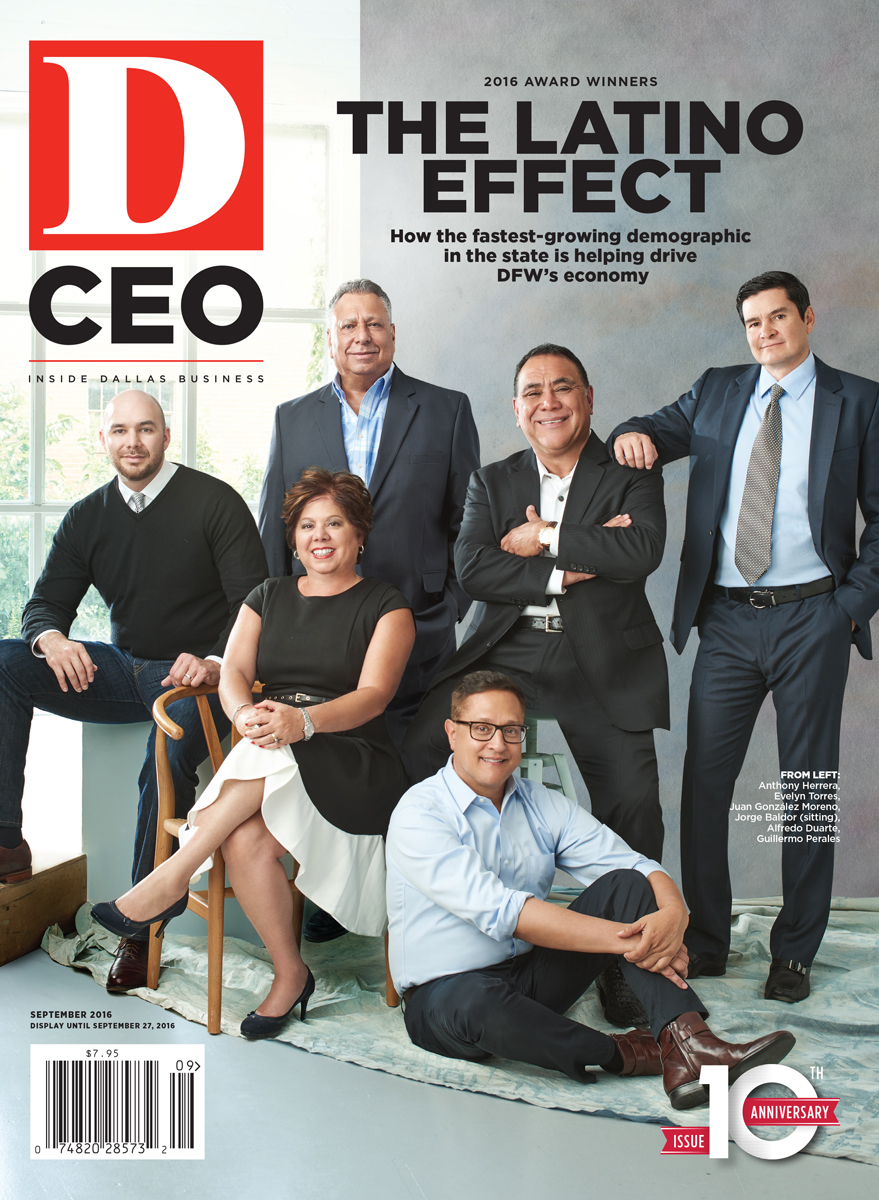Bill Minick, who pioneered an alternative to the $3 billion Texas workers’ compensation system, likes to say he has challenged the status quo all his life. Even back in his school days, the 56-year-old, Fort Worth-reared attorney recalls, he relished mixing it up with his political science teachers.
“I realized I liked to ask questions,” Minick tells me during a recent lunch at Sevy’s Grill in Dallas. “I would ask for an explanation: ‘Why is that? Can you demonstrate it? Can we do it better?’ I took a fair amount of ribbing from my classmates, who were amused.”
Minick’s even a skeptic in his dining choices. Ninety percent of the time, he says, he’ll ignore the regular menu and opt for the chef’s special. Just as he did at Sevy’s, when he went for the fish special with mahi mahi, crawfish, and rice. “I think everything can be improved,” he says, tucking into his lunch.
Indeed, improving things was Minick’s motivation when he became a cheerleader for what’s called “nonsubscription” or “option” injury benefit plans, the Texas alternative to traditional workers’ compensation. Under the nonsubscription model, employers reject or opt out of the state’s voluntary comp system, establishing their own ERISA benefit plans to address workplace injuries. (ERISA is a federal law that sets minimum standards protecting individuals in private-sector retirement plans.)
“It’s very daunting to have such well-funded, well-organized opposition.”
Today nearly 1.5 million of the 10 million employees in Texas are covered by the free-market, nonsubscription option. As president of Dallas-based PartnerSource, a 35-employee consulting firm and insurance agency specializing in these alternative plans, Minick represents about 150 clients, many of them large national corporations with Texas operations. Although he declines to name them, he coyly advises me to “think of the biggest names” in industries ranging from trucking, retailing, and food service to manufacturing and healthcare.
Minick’s interest in the topic stems from his days as a tax and benefits attorney at Dallas’ Thompson & Knight law firm. When workers’ compensation premiums “went through the roof” in the late 1980s, he remembers, he began hearing that Texas companies were dropping their state-sponsored coverage. That piqued his interest in ways to make the system work better, which led to his founding PartnerSource in 1994.
Although the nonsubscription option has been available in Texas since 1913, it really took off in recent years thanks to Minick and others. As a result of competition and legal reforms, comp costs in the state have steadily decreased. And today, a whopping 33 percent of the state’s employers have opted out of the traditional system. One big reason, Minick argues: the nonsubscription option is faster, saves money, and delivers results that are fairer to all parties involved.
Under the option plan, employers participate directly in the injury recovery process, Minick contends. Employees in most cases get better medical care and better wage-replacement benefits, he says. Comp claims also close faster, and fewer are initially denied or disputed, Minick insists—and the state doesn’t have to pay a cent to oversee things. A new study by Leigh J. Halliwell, an independent actuary, confirms that option plans result in shorter durations of disability and faster return-to-work periods, Minick adds.
Unsurprisingly, not everyone agrees. What Minick calls the “Workers’ Compensation-Industrial Complex”—comp insurance companies, trial lawyers, legislators, and medical providers—routinely criticize option plans in order to protect and grow their “multimillion-dollar workers’ compensation revenue streams,” he says. And, the press often joins in. Last year, a story prepared jointly by news outlets ProPublica and NPR charged that option plans “almost universally have lower benefits, more restrictions, and virtually no independent oversight.”
Minick assertively pushes back on such criticisms—just as he challenged his teachers back in his school days. “It’s very daunting to have such well-funded, well-organized opposition,” he says, finishing up his fish special. “But when you know that public policy and the data are in your favor … it provides you with the strength to carry on.”






